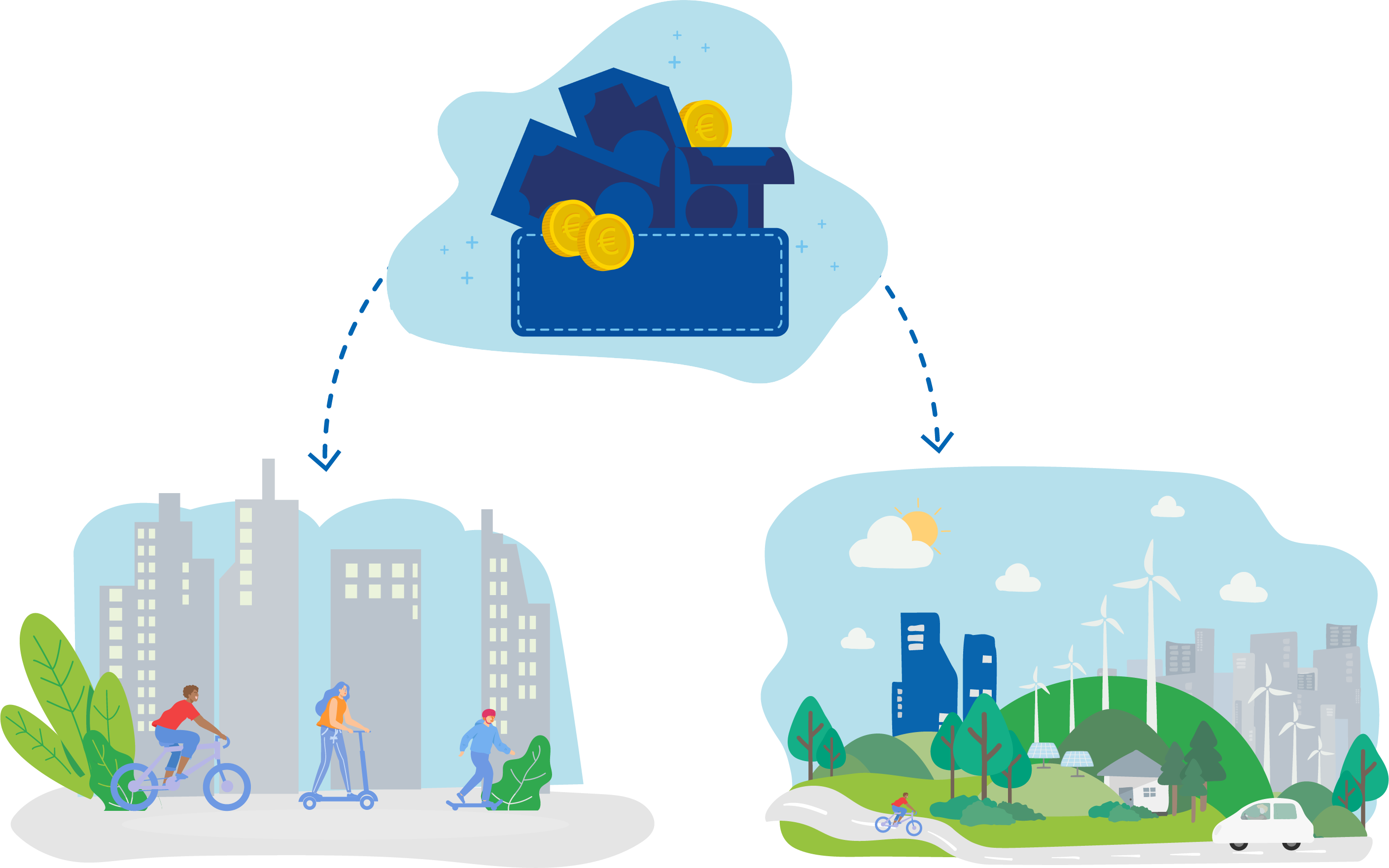
Urban Mobility is an initiative of Spanish origin, co-founded by the European Union and based in Barcelona. It is part of the European Institute of Innovation and Technology (EIT), which belongs to the European Union's innovation cluster. Its objective is to bring together companies, educational institutions, institutions of excellence in research and city representatives, facilitating and financing collaboration between these actors to create mobility solutions that accelerate the transition to more sustainable and livable urban spaces.


The challenge
State-of-the-art training coverage
EIT Urban Mobility's challenge is to train professionals capable of finding innovative and strategic solutions so that they acquire the necessary tools to contribute to the creation of more sustainable and livable urban environments for future generations. This challenge involved not only developing the technical and analytical skills of these professionals, but also ensuring that the experts in charge of their training are able to convey the information in a pedagogical, accessible and attractive way.
EIT Urban Mobility is looking for experts around the world who want to collaborate, knowing that many of them are not education or communication professionals. In this context, Actua's instructional designer plays a crucial role, standing between the expert and EIT, accompanying them throughout the project.
Accessibility as a pedagogical value
For EIT Urban Mobility it is key in its corporate culture to take on the challenge of accessibility, and for this it is necessary to have content with a universal design that facilitates social inclusion and access to knowledge. We seek a universal design that is also attractive to students. The courses are based on real-life use cases, where participants sometimes assume the main role, facing dilemmas and reflection questions. Thus, the courses acquire a narrative that facilitates their comprehension and assimilation.
The trainings are aimed at a very diverse audience, ranging from mobility professionals to influential people in this field, such as city councils and company managers. These are professionals who are able to apply this knowledge in practice. They all need an introductory level to understand how they can champion a new idea or their business, and what impact it will have at the citizen level, to holistically understand the issue of urban mobility. And that digestible material can also be consumable by the citizen himself. Thus, EIT Urban Mobility looks at the entire urban ecosystem.

Our proposal
EIT Urban Mobility and Actua: Accessible and attractive courses for users
The solution implemented was to consolidate all the experts' knowledge into a course that would be accessible, interesting and engaging for users. Thanks to our team of instructional designers , we were able to create educational materials that are not only digestible, but also attractive, ensuring that users can assimilate and effectively apply the concepts presented.

Assimilable, self-conclusive and modular training courses
In the creation of contents, we look for very understandable training courses, designed to be self-conclusive, in case the student wishes to do them separately.
In addition to 3 courses dedicated exclusively to autonomous vehicles, EIT Urban Mobility is developing the following trainings:
Low emission zones-Urban Vehicle Regulation, a course focused on professionals in which it is explained that not only the regulatory aspect is important, but also that the audience must be won over. The course highlights the communication plan and how relevant it is for the citizen.

Urban Heat Island, a training on why big cities at night are heat islands.
Cargo Bike, a course for the Logistics cycle, which deals with moving small parcels without using cars or vans, which generate more pollution.
Street for Kids, a socially oriented training that explains how creating universal accessibility enables society to empower children.
How do you know that the formations work? Sometimes through field experiments, also known as street experiments, conducted in real environments. Collaborative projects between companies and cities are carried out and tested for a period of time to observe the impact. These cases are included in the courses to boost engagement.

Totara as a digital learning platform
EIT Urban Mobility has opted for Totara technology as LMS because it is a very robust and adaptable platform, focused on the user experience. In addition, Totara, being an open source tool, allows the development of solutions at highly competitive prices.
Thanks to this collaboration, EIT Urban Mobility has a digital collaborative space where to offer a wide range of content. In addition, it allows training available in several languages, with the objective designed to create a community of professionals, able to capture in a common space the most cutting-edge solutions to meet the challenges of mobility in cities.
In the future, EIT Urban Mobility aspires to build a community where everyone with ideas to contribute transmits them through this channel, through the LXP Totara Engage. A philosophy of lifelong learning that connects with the founding principles of EIT.

The results

Training success: EIT Urban Mobility achieves high satisfaction rates and thousands of participants.
The result is highly improved courses with a satisfaction index of over 4.5, out of a maximum 5-point rating.
During the first half of 2024 this project has had 7,000 registrations, and between all courses there have been 1,500 completed trainings. Since 2021, they have had 15,000 participants and a total of 42,000 course registrations.


"We value Actua's empathy and flexibility. For us, these are the characteristics that best define their work."



